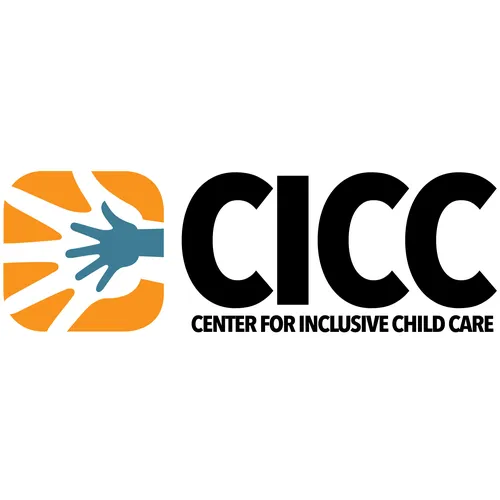
Inclusion Matters
Inclusion Matters is a new podcast produced by the Center for Inclusive Child Care. Topics covered include issues related to Inclusion Consultation
- Update frequency
- every 13 days
- Average duration
- 17 minutes
- Episodes
- 242
- Years Active
- 2016 - 2025

https://www.inclusivechildcare.org/InclusionMattersItunes.xml Group Time--Do you Love it or Dread it: Part One
There are many areas of programming where challenging behaviors occur. Group or circle time is often an activity where children can struggle to stay tuned in and adults can be frustrated by not meeti…

https://www.inclusivechildcare.org/InclusionMattersItunes.xml Emotional Sensitivity
Emotional sensitivity is the ease or difficulty with which a child responds emotionally to situations. Some children are very sensitive to what is going around them while others seem oblivious to the…

https://www.inclusivechildcare.org/InclusionMattersItunes.xml Intensity--I Want Your Energy!
Intensity as a temperament trait is all about the amount of energy a child uses to express his emotions, and we know that some children cry, talk, and laugh more loudly than anyone else in the progra…

https://www.inclusivechildcare.org/InclusionMattersItunes.xml Run Away or Run into Your Arms--Slow to Approach/Withdraw
A child’s initial tendency to respond to a new experience, new person, or new environment can be either ‘arms open wide’ or ‘wait-and-see’. Both types of approaches need our guidance as early childho…

https://www.inclusivechildcare.org/InclusionMattersItunes.xml Adaptability and Mood--How to Help Children with Change
Some children have difficulty when it comes to adjusting to attempts to change or influence what they are doing. Change is often hard for many of us when we are doing something we really enjoy! When …

https://www.inclusivechildcare.org/InclusionMattersItunes.xml Activity Level--Children Who Need to Move!
Cindy and Priscilla discuss a temperament trait that is commonly associated with challenging behaviors in early childhood settings: activity level. While we often think first about a child who is rea…

https://www.inclusivechildcare.org/InclusionMattersItunes.xml Intro to Temperaments--How are Children Wired?
We will begin a series of podcasts on the major temperament traits that can relate to challenging behaviors at times. In the first podcast, Cindy Croft and Priscilla Weigel talk about how temperament…

https://www.inclusivechildcare.org/InclusionMattersItunes.xml A Child Who Flies “Under the Radar”--When a Diagnosis Isn’t Made: Part Three
In this podcast, we will continue the last conversation by looking at 4-5 year olds. It is easy at times to see a child’s behavior outside of the context of their age and stage. When we look again at…

https://www.inclusivechildcare.org/InclusionMattersItunes.xml Choosing A Setting--What is the Best Option for a Child with Autism: Part Two
In our continued discussion with Pat Pulice, M.A., L.P., Vice President of Integrated Health Care at Fraser in Minneapolis, MN, we will look at different settings a child might be in who has an autis…

https://www.inclusivechildcare.org/InclusionMattersItunes.xml Young Children with Autism--What Does the Label Really Mean: Part One
In the first of this series of podcasts, Cindy and Priscilla interview Pat Pulice, M.A., L.P., Vice President of Integrated Health Care at Fraser in Minneapolis, MN, on what the major characteristics…

https://www.inclusivechildcare.org/InclusionMattersItunes.xml Sit Still, Don't Touch, Wait--Are We Setting Children Up for Success?
In this podcast, we will continue the last conversation by looking at 4-5 year olds. It is easy at times to see a child’s behavior outside of the context of their age and stage. When we look again at…

https://www.inclusivechildcare.org/InclusionMattersItunes.xml Families--The Process of Grief and Loss of Dreams (Conclusion)
In the final session in this series, Priscilla Weigel and Cindy Croft will offer insights into some of the responses that may come from a family when they are told there are red flags in their child’…

https://www.inclusivechildcare.org/InclusionMattersItunes.xml Sharing Concerns with Families--Having the Conversation: Part Three
In part 3 of our series on Sharing Concerns with Families, Priscilla Weigel and Cindy Croft discuss the sensitive topic of talking to a family about their child’s development. This is often one of th…

https://www.inclusivechildcare.org/InclusionMattersItunes.xml Sharing Concerns with Families--Setting the Stage: Part Two
Once we have gathered our information to share about a developmental concern, we need to set the stage for our conversation with the family. The ongoing partnership between the early educator, family…

https://www.inclusivechildcare.org/InclusionMattersItunes.xml Sharing Concerns with Families--Observations and Recordings: Part One
In this podcast, we will begin a series on the sensitive topic of how to share developmental concerns with families. The first steps in talking to families about a developmental red flag is to have o…

https://www.inclusivechildcare.org/InclusionMattersItunes.xml When Concerns Arise--What are Red Flags for Developmental Concerns: Part Two
In part two of this series on developmental concerns, we will define what a red flag means as we observe a child’s development. Is it one behavior or a cluster of behaviors? In addition, we will disc…

https://www.inclusivechildcare.org/InclusionMattersItunes.xml When Concerns Arise--Why Developmental Milestones are Important: Part One
In this series on developmental concerns, we begin by looking at typical developmental milestones as guideposts for understanding how children develop their social, emotional, language, physical, and…

https://www.inclusivechildcare.org/InclusionMattersItunes.xml Who’s in Control and Why Does it Matter?
In this podcast, Cindy Croft and Priscilla Weigel discuss the struggle that can sometimes arise between the early educator and a child in finding the balance between limit setting and power struggle.…

https://www.inclusivechildcare.org/InclusionMattersItunes.xml Play--Helping Children Who are Ignored or Rejected by Peers: Part Four
In this concluding podcast on play concerns, we will look at some of the reasons a child might be ‘forgotten’ by his peers or even rebuffed when trying to join in play. Inclusion consultant Priscilla…

https://www.inclusivechildcare.org/InclusionMattersItunes.xml Play--Helping Children Who Seem Anxious or Distracted: Part Three
Do you have children in your program who are reluctant to join others in play, or perhaps aren’t invited to join in because they seem too aloof? All children need one another to learn social competen…